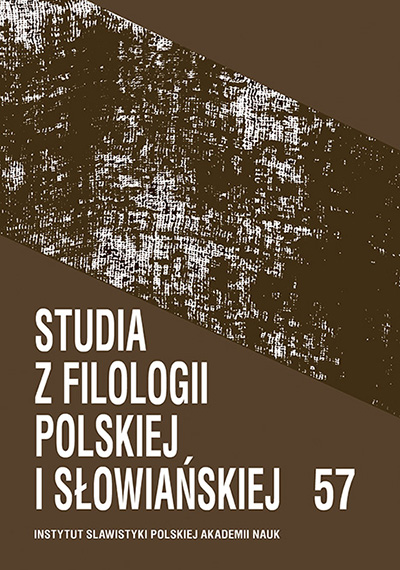Деривационные механизмы формирования семантики «отсутствия» адъективов в русском языке: лингвокогнитивный аспект
Derivation Mechanisms for the Formation of the Semantics of “Absence” in Russian Adjectives: Linguocognitive Aspect
Author(s): Olga Vyacheslavivna RadchukSubject(s): Semantics, Cognitive linguistics
Published by: Instytut Slawistyki Polskiej Akademii Nauk
Keywords: cognitive aspect; concept of absence; derivational dominants; secondary nomination; prefixes bez-/bes- and ne-; prefixed adjectives;
Summary/Abstract: Taking into account an immanent meaning of the prefix makes it possible to reveal the linguistic mechanism of formation of abstract adjectives that convey the concept of “absence” in the Russian language from a cognitive standpoint. This study of prefix and confix formation of adjectives with the prefixes bez-/bes-and ne- presents general observations on units which are subject to derivation in focus, identifies typical models of transfer of the concept of “absence” by prefix and prefix-suffix derivation in Russian, and proposes a semantic-derivational classification of the main types of adjectives formed on the basis of apperception from the prototypes net ‘no’ and bez ‘without’. The models selected help to differentiate the representation of the abstract concept of “absence”, testify to the relevance and wide range of use of adjectives with the prefixes under scrutiny, and illuststrate ways to reflect the prototypes net and bez in Russian speakers’ mentality. Component analysis of the material enabled certain theoretical generalisations. The study proposes a classification and description of lexical-semantic and derivational explication of the originality of the representation of the concept of “absence” in the Russian language and identifies universal derivational dominants that form this concept.The semantic-derivational typology of secondary abstract adjectives formed from the prototypes ‘no’ and ‘without’ indicates that prefixal derivatives with the prefixes bez-/bes- and ne- convey the concept of “absence” in different ways: first, through derivatives with identical meaning or different semantics; second, by only one possible derivative; third, by diverse abstract adjectives.
Journal: Studia z Filologii Polskiej i Słowiańskiej
- Issue Year: 2022
- Issue No: 57
- Page Range: 1-20
- Page Count: 20
- Language: Russian

